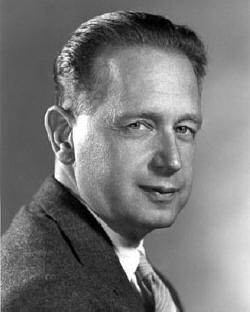

Queer Places:
Dag Hammarskjold Plaza, 245 E 47th St, New York, NY 10017
Uppsala gamla kyrkogård
Uppsala, Uppsala kommun, Uppsala län, Sweden
 Dag Hammarskjöld (July 29, 1905 - September 18, 1961) is perhaps one of the most enigmatic men of prominence of the twentieth century.
He
managed to live an intensely private and secluded life in full view of the public. Hammarskjöld navigated
the difficult seas of national and international politics and became the Secretary General of the United
Nations. His sexual life, however, remains clouded by rumor with scant evidence to confirm any argument.
Dag Hammarskjöld (July 29, 1905 - September 18, 1961) is perhaps one of the most enigmatic men of prominence of the twentieth century.
He
managed to live an intensely private and secluded life in full view of the public. Hammarskjöld navigated
the difficult seas of national and international politics and became the Secretary General of the United
Nations. His sexual life, however, remains clouded by rumor with scant evidence to confirm any argument.
Dag Hammarskjöld was born in Jonkoping in south-central Sweden on July 29, 1905 into a family prominent in Swedish government. His father, Hjalmar, served as provincial governor and later Prime Minister during World War I, maintaining Swedish neutrality. Dag was the fourth son born to Hjalmar and Agnes, who was in her forties at the time of his birth. Agnes wanted a girl and compensated by dressing Dag in lacey skirts and other feminine attire well into his boyhood.
The family lived in Uppsala, one of Europe's oldest and most prestigious university towns. Hammarskjöld received his first degree in humanities, specializing in the poetry of Emily Dickinson and Herman Hesse. Subsequently, he took a second degree at Uppsala in economics in 1928, a law degree in 1930, and a doctoral degree in economics in 1934. Hammarskjöld taught economics at the University of Stockholm in 1933.
Beginning in 1930, like his father and older brothers, Hammarskjöld also filled various posts in Swedish government. He became a secretary of a governmental committee concerning unemployment (1930-1934). He served both as Permanent Under-Secretary of the Ministry of Finance and Chairman of the National Bank's Board.
From 1946 forward, Hammarskjöld's involvement with international politics grew, as he served in the Swedish Foreign Ministry in various capacities. He represented Sweden in discussions that resulted in the formation of the Marshall Plan, which rebuilt western Europe following World War II. He simultaneously managed to exert a guiding influence on the shape of the post-war European political and economic reorganization, while he avoided entangling Sweden in the politically polarized NATO agreements.
He served as Swedish delegate to the United Nations in 1949 and again from 1951 to 1953. In 1953 he was elected for a five year term as U. N. Secretary General, and re-elected in 1957.
Immediately upon his election as Secretary General, the rumors of his homosexuality began to circulate. Throughout his life, Hammarskjöld remained without female attachments. He dismissed his lack of family life by explaining that his mother had suffered terrible loneliness as a result of his father's devotion to government service and he did not wish to inflict such a life on anyone else. Considering how rare a highranking single man was in any government at the time, such excuses seem rather flimsy.
Hammarskjöld held deep religious beliefs and held himself, and others, to impossibly high standards. His introspective book of personal reflections, Markings, reveals a man who frequently regarded himself and others with loathing and contempt. He never spared himself from the same exacting requirements of perfection that he sought in others. Speculation that he could see his sexuality only as a personal weakness, and therefore something to be sublimated and overcome, continues to be the primary interpretation of his apparently asexual existence.
In Markings, he leaves only vague hints that may be keys to his sexual feelings. He implies that he feels ostracized for being different, perhaps superior. In another passage, he describes someone who is more true to himself; Hammarskjöld simultaneously admires and abhors the person. While such thoughts may point to Hammarskjöld's tormented sexual conflicts, they could equally well refer to something else entirely.
Unless some hidden manuscript surfaces or an aging lover suddenly feels moved to revelation, it seems unlikely the world will ever know for sure the details of Hammarskjöld's sexual experience. W. H. Auden, who translated Markings, was convinced of his homosexuality; it is thought that saying so publicly during a lecture tour of Scandinavia may have cost Auden the Nobel Prize for Literature that he was widely expected to receive in the 1960s.
Hammarskjöld's tenure as Secretary General saw global conflicts both hot and cold. The Eastern and Western Powers having settled into the long period of virtual stalemate, his tenure as Secretary General saw the Suez Canal Crisis, the on-going Middle East Crisis, and the incipient awakenings of African colonies as they moved to assert their voices for independence. Hammarskjöld provided a voice of reason and calm in a world all too often filled with demagoguery and histrionics.
During a U. N. mission in the Congo, Hammarskjöld died in a plane crash, sometime during the night of September 17 and 18, 1961. Later that year, Hammarskjöld was posthumously awarded the Nobel Peace Prize.
My published books: